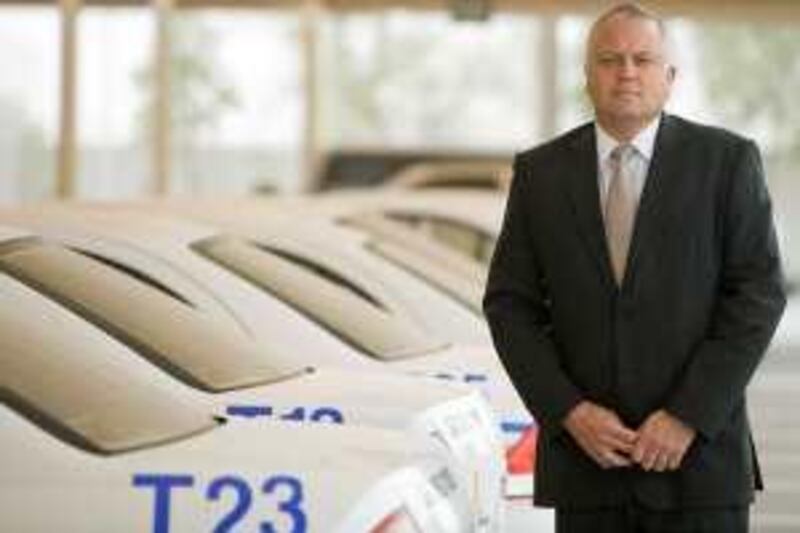ABU DHABI // A governmental push to institute a mandatory theory exam for learner drivers has gained the support of a leading driving school in Dubai. Such a test - as well as restrictions on young and student drivers - would go a long way towards improving safety on the country's roads, said Peter Richardson, operations manager of the Emirates Driving Institute in Dubai.
The Roads and Transport Authority is putting the final touches on its new theory test, which it said would be in place by late autumn. The present exam only measures students' knowledge of road signs. A nationwide highway code was another possibility presented at a meeting last month led by the National Transport Authority. "As far as progressing driver training and driver awareness is concerned, we would embrace the implementation of a theory test," Mr Richardson said.
"We and other driving schools do actually break down the information that is necessary for students into a series of lectures. But what is missing is a written test of sound knowledge over a spectrum of driving issues." The institute and the UK-based Transport Research Laboratory co-hosted a workshop this year with traffic officials from each emirate to discuss how to unify the licensing system. Because young drivers generally are more at risk than experienced drivers, Mr Richardson said, ways must be found to teach them about responsibility and vulnerability.
In March, Allan Quimby of the Transport Research Laboratory said 32.5 per cent of serious road crashes and 37 per cent of crashes causing injuries in the past five years in Dubai were caused by new drivers. Drivers aged 18 to 27 were responsible for 35 per cent of accidents, he said. Mr Richardson, formerly the head of training for the UK-based Institute of Advanced Motorists and a former traffic officer, said limits on the size of a car a new driver may use and restrictions on back-seat passengers would both help a young driver adjust to the challenges of the road.
Studies have shown that young drivers are more likely to be distracted by passengers. Those receiving licences for motorcycles or heavy vehicles could also face restrictions on the size of their vehicles, he said. Similarly, a form of "graduated licensing," designed to gradually educate novice drivers, should be applied to new lorry drivers, he said. Now, a person can be licensed to drive a lorry without passing a car driving test.
Although teenagers are more likely to be involved in accidents than older drivers, the chances decrease sharply during the first few years of driving, according to a study by Transport Research Laboratory. Reducing exposure to risk during the early months of driving can help counter the negative effects of inexperience, studies show. @Email:mchung@thenational.ae






